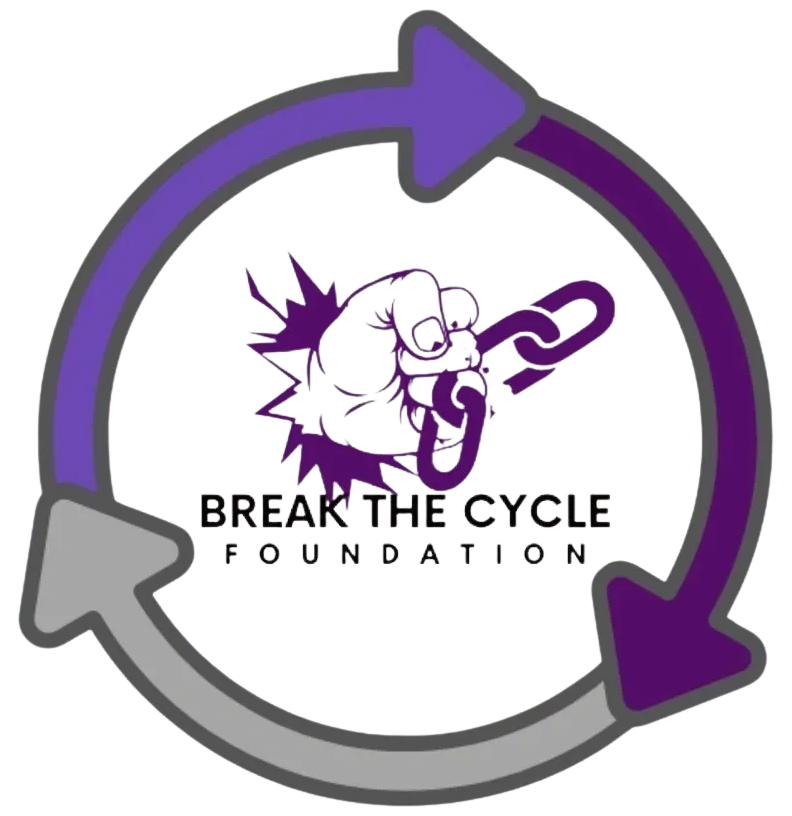Benefits of Addiction Counseling
Addiction counseling offers numerous benefits for individuals seeking recovery from substance use disorders. Through various therapeutic techniques and approaches, counseling helps clients gain a deeper understanding of their addiction and develop sustainable coping mechanisms.
Understanding Addiction Triggers
Understanding what triggers addiction is a crucial component of effective counseling. Addiction triggers can be internal or external stimuli that induce cravings and potentially lead to relapse. These triggers can include emotional stress, environmental cues, and social interactions.
Therapists work with clients to identify their specific triggers and understand the underlying causes of their addiction. Recognizing these triggers allows individuals to anticipate and manage them more effectively. For example, cognitive-behavioral therapy (CBT) is widely used in addiction recovery and helps individuals overcome challenges perpetuating harmful substance use. CBT also equips clients with skills to achieve and maintain recovery (NCBI).
| Common Addiction Triggers | Internal Triggers | External Triggers |
|---|---|---|
| Emotional Stress | Anxiety | Certain Locations |
| Social Pressure | Depression | Specific Events |
| Environmental Cues | Boredom | People |
For more information on understanding the various aspects of substance use disorder and its treatment, see our article on what is substance use disorder and how is it treated.
Coping with Stress
Another significant benefit of addiction counseling is learning to cope with stress. Stress is a major factor that can exacerbate addiction and lead to relapse. Counseling provides tools and strategies to manage stress effectively.
Therapeutic techniques such as CBT, motivational interviewing, and dialectical behavioral therapy help individuals develop healthy coping mechanisms. For instance, mindfulness techniques integrated into CBT enable clients to remain present and reduce stress levels, thereby decreasing the risk of relapse (DrugRehab.com).
Additionally, contingency management therapy involves a reward system where clients receive incentives for completing desirable actions, such as attending treatment sessions. This approach not only helps in reducing stress but also motivates individuals to remain committed to their recovery journey (High Focus Centers).
For more details on how structured counseling aids in breaking the cycle of addiction, please refer to our comprehensive guide on how structured counseling helps break the cycle of addiction.
By understanding addiction triggers and learning to cope with stress, individuals are better equipped to manage their recovery journey. Explore more about setting goals and planning for relapse prevention in our detailed articles on setting realistic recovery goals with your care team and relapse prevention planning: core elements to include.
Setting Treatment Goals
At Break The Cycle Foundation, setting clear and achievable treatment goals is vital for successful recovery from addiction. These goals not only serve as markers of progress but also provide motivation and a clear direction on the journey to long-term sobriety (J. Flowers Health Institute).
Importance of Clear Goals
Clear goals serve as a roadmap, helping clients and therapists maintain focus and track progress. Goals should be personalized to the client’s specific needs and situation, ensuring they are realistic and achievable (NCBI). Therapists explore and respect the client’s view of their concerns and solutions, treating the client as the expert on their own experience.
Research has shown that measurement-based care enhances the quality of treatment, with standardized goal monitoring significantly increasing the chances of achieving set goals. For more details on this approach, check out our guide on setting realistic recovery goals with your care team.
Abstinence-Based Goals
Abstinence-based goals emphasize achieving and maintaining complete sobriety from the substance of abuse, forming the foundation for a healthy recovery journey. This approach is particularly critical for those recovering from severe substance use disorders.
| Goal Type | Description | Importance |
|---|---|---|
| Short-term Goals | Immediate, achievable tasks | Build confidence and create momentum |
| Long-term Goals | Sustained abstinence and lifestyle changes | Ensure lasting recovery |
Abstinence-based goals are a primary focus in substance use disorder treatment, acting as the core strategy for recovery. These goals help clients avoid substances and build a foundation for healthier habits. For more on our comprehensive approach to addiction treatment, explore what is substance use disorder and how is it treated.
By setting individualized, clear goals, we can ensure clients stay focused and motivated on their path to recovery, using measurable milestones to celebrate progress and adjust as necessary. For an overview of the treatment journey, see our article on what to expect during your first outpatient therapy session.
Therapy Techniques for Addiction
At Break The Cycle Foundation, we offer various therapy techniques designed to help individuals overcome addiction and achieve lasting recovery. Two of the most effective methods we utilize are Cognitive Behavioral Therapy (CBT) and Motivational Interviewing.
Cognitive Behavioral Therapy (CBT)
Cognitive Behavioral Therapy (CBT) is a widely used therapy for addiction treatment. It focuses on addressing the underlying factors that lead individuals to abuse substances and teaches positive strategies for dealing with triggers to prevent relapse. CBT helps individuals identify and change negative thought patterns and behaviors that contribute to their addiction.
Our therapists work with clients to help them recognize situations that are likely to trigger substance use. By understanding these triggers, clients can develop effective coping mechanisms to handle cravings and stress. CBT also focuses on improving emotional regulation and problem-solving skills, which are crucial in maintaining sobriety.
| Session Frequency | Typical Duration | Techniques Used |
|---|---|---|
| Weekly or bi-weekly | 8-16 weeks | Thought Record, Behavioral Experiments, Exposure Therapy |
For more on our structured counseling approaches, see how structured counseling helps break the cycle of addiction.
Motivational Interviewing
Motivational Interviewing is another powerful technique we use in addiction treatment. This method is client-centered and designed to enhance an individual’s motivation to change. During sessions, therapists help clients explore and resolve their ambivalence about quitting substance use.
The goal of Motivational Interviewing is to increase an individual’s intrinsic motivation to make positive changes. Our therapists facilitate this process by:
- Expressing empathy through reflective listening
- Helping clients develop discrepancies between their goals and their current behaviors
- Rolling with resistance rather than confronting it directly
- Supporting self-efficacy and optimism
Motivational Interviewing is especially beneficial for individuals who may be hesitant or unsure about making a change. By fostering a supportive and non-judgmental environment, clients feel more empowered to take steps toward recovery.
| Session Length | Frequency | Focus |
|---|---|---|
| 45-60 minutes | Weekly | Building motivation, resolving ambivalence, supporting self-efficacy |
For more information on what to expect from your initial sessions, visit what to expect during your first outpatient therapy session.
Both Cognitive Behavioral Therapy and Motivational Interviewing are integral parts of our individualized treatment plans. These techniques, along with our comprehensive range of services, ensure that our clients receive the best possible care on their journey to recovery. To better understand the broader context and methodology of addiction treatment, refer to our section on understanding the intake and assessment process and how we assist in setting realistic recovery goals with your care team.
Whether you are new to therapy or seeking additional support, Break The Cycle Foundation is here to help. Our evidence-based approach is designed to provide the tools and strategies needed to lead a healthier, addiction-free life.
Levels of Outpatient Treatment
At Break The Cycle Foundation, we recognize the importance of individualized care in the journey towards recovery from addiction. Understanding the various levels of outpatient treatment is crucial for anyone seeking individual counseling for addiction. Here, we break down what you can expect from Intensive Outpatient Treatment Level II (IOT) and standard outpatient treatment programs.
Intensive Outpatient Treatment Level II (IOT)
Intensive Outpatient Treatment Level II (IOT), as defined by the American Society of Addiction Medicine (ASAM), provides structured programming for a minimum of nine hours per week, distributed over three to five days. This level of care offers a flexible approach tailored to individual client needs, which is essential for maximizing recovery outcomes.
A key benefit of IOT is its comprehensive and intensive nature, which includes a range of therapies such as individual counseling, group therapy, and relapse prevention strategies. The treatment typically lasts a minimum of 90 days, with longer durations being associated with better recovery results (NCBI Bookshelf).
IOT Locations:
- Hospital settings
- Prison facilities
- Vocational training sites
- Homeless shelters
Clients who complete IOT often transition to standard outpatient treatment, demonstrating their commitment to change and stable recovery.
Outpatient Treatment
Outpatient treatment offers a less intensive level of care compared to IOT but remains highly effective for many individuals. This program typically runs for around 60 days and includes both group and individual counseling, relapse prevention programming, and educational sessions on drug and alcohol use (NCBI Bookshelf).
Outpatient treatment can be an excellent follow-up option after completing IOT or for individuals with less severe addiction issues. Clients in outpatient treatment may schedule periodic follow-up sessions to ensure long-term recovery and support.
Key Components of Outpatient Treatment:
- Group therapy sessions
- Individual counseling
- Educational programming
- Relapse prevention plans
For more in-depth information on what to expect during your first session, visit our page on what to expect during your first outpatient therapy session.
| Treatment Program | Typical Duration | Weekly Hours | Main Components |
|---|---|---|---|
| Intensive Outpatient Treatment Level II (IOT) | 90 days or more | 9+ | Individual counseling, group therapy, relapse prevention |
| Outpatient Treatment | 60 days | Variable | Group therapy, individual counseling, drug and alcohol education |
Understanding these levels of care can help you or your loved ones make informed decisions about the best treatment path. Explore more about how structured counseling helps break the cycle of addiction to understand the benefits of our comprehensive programs.
Specialized Counseling Approaches
In individual counseling for addiction, it is important to explore a variety of therapeutic techniques that cater to the specific needs of each person. At Break The Cycle Foundation, we employ specialized counseling approaches including Contingency Management Therapy and Narrative Therapy to provide comprehensive support.
Contingency Management Therapy
Contingency Management Therapy is an evidence-based approach that uses a rewards system to encourage positive behaviors such as attending treatment sessions and maintaining sobriety. This method uses tangible incentives to reinforce desirable actions, which can be especially effective in treating addiction (High Focus Centers).
In this therapy, clients receive rewards for meeting specific goals such as having clean urine samples. These incentives can range from vouchers to other tangible rewards, making the process more engaging and motivating for clients.
| Behavior | Reward |
|---|---|
| Attending treatment sessions | Vouchers |
| Maintaining sobriety | Gift cards or tokens |
| Completing therapy milestones | Tangible rewards |
By integrating Contingency Management Therapy into our treatment plans, we create a structured and motivating environment that greatly enhances the chances of successful recovery. Learn more about how structured counseling can help break the cycle of addiction.
Narrative Therapy
Narrative Therapy focuses on empowering individuals to rewrite their life stories, separating their identity from their addiction. This therapeutic approach encourages clients to examine the narratives they have constructed about their lives and to challenge unwanted stories that may be contributing to their addiction (High Focus Centers).
By revisiting and reinterpreting life events, clients learn to view themselves as more than their addiction. This form of therapy promotes hope and instills a sense of control, enabling individuals to drive their own recovery journey.
Key components of Narrative Therapy include:
- Storytelling: Clients share stories about their lives and experiences.
- Re-authoring: Therapists help clients identify and alter negative narratives.
- Identifying Strengths: Emphasizing personal strengths and accomplishments.
| Step | Description |
|---|---|
| Storytelling | Sharing life stories and experiences |
| Re-authoring | Identifying and transforming negative narratives |
| Identifying Strengths | Focusing on personal strengths and achievements |
By using Narrative Therapy, we support clients in recognizing their personal strengths and capabilities, facilitating lasting change and growth. This approach is an integral part of setting realistic recovery goals and monitoring progress. For more on setting attainable recovery goals, visit setting realistic recovery goals with your care team.
These specialized counseling approaches, combined with our dedicated team and comprehensive treatment plans, make Break The Cycle Foundation a trusted partner in the journey to recovery. Whether through Contingency Management or Narrative Therapy, we ensure individualized care that addresses the unique needs of each person, helping them to overcome addiction and achieve lasting sobriety. To understand more about the initial steps in our programs, visit what to expect during your first outpatient therapy session and understanding the intake and assessment process.
Role of Peer Support in Recovery
Peer support is an integral aspect of addiction recovery, providing emotional and practical benefits that professional treatment alone may not offer. Let’s delve into the support from peer groups and the role of family therapy in the recovery journey.
Support from Peer Groups
A strong network of peers is crucial for those in recovery. Peer support groups such as Alcoholics Anonymous (AA) and Narcotics Anonymous (NA) offer a structured environment where individuals can share their struggles and successes. This social support can significantly impact recovery and relapse prevention (St. James Rehab).
Peer groups provide:
- Emotional Support: Sharing experiences with others who understand the journey can reduce feelings of isolation.
- Practical Advice: Experienced members can offer valuable insights and coping strategies.
- Accountability: Regular attendance and participation can help individuals stay committed to their recovery goals.
| Benefits of Peer Support | Description |
|---|---|
| Emotional Support | Reduces isolation, shares experiences |
| Practical Advice | Offers coping strategies and insights |
| Accountability | Encourages commitment to recovery goals |
For more information on how group therapy supports recovery, visit our dedicated article.
Role of Family Therapy
Family therapy is often a crucial component of addiction treatment programs. It addresses issues within the family and allows everyone to express their feelings. Participation of family members in therapy sessions is key to long-term success in substance abuse treatment.
Benefits of family therapy include:
- Improved Communication: Enhances understanding and empathy among family members.
- Conflict Resolution: Addresses and resolves underlying family conflicts.
- Future Support: Lays the foundation for ongoing emotional support post-treatment.
| Benefits of Family Therapy | Description |
|---|---|
| Improved Communication | Enhances understanding and empathy |
| Conflict Resolution | Addresses and resolves family conflicts |
| Future Support | Provides ongoing support post-treatment |
Family therapy helps to create a supportive and understanding home environment, which is essential for sustainable recovery. For additional resources, see our guide on setting realistic recovery goals with your care team.
Incorporating both peer support and family therapy into a recovery plan can enhance the effectiveness of individual counseling for addiction: what to expect. Leveraging these support systems ensures a well-rounded approach to overcoming addiction.







